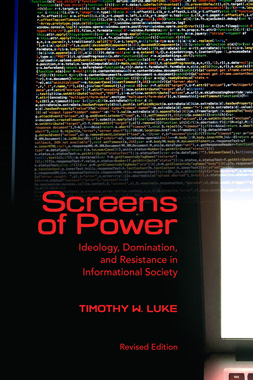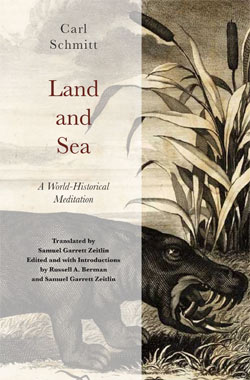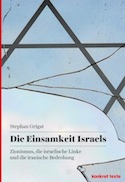By Telos Press · Wednesday, June 23, 2021 Writing in the current issue of New Political Science, Saladdin Ahmed reviews Timothy W. Luke’s Screens of Power: Ideology, Domination, and Resistance in Informational Society, recently published in a new edition by Telos Press. Purchase your copy of Screens of Power today in our online store and save 25% off the list price.
An excerpt of the review:
 Screens of Power first came out in 1989, a time that would turn out to be the most significant historical turn in global politics after World War II. The book’s author, Timothy W. Luke, offers a concrete account of the history of neoconservatism, grounding his claims in critical analyses of the production of signs, codes, and mass opinion that were at the time making evident their systematic role in the perpetuation of what would emerge as capitalist absolutism. Luke’s book offers a groundbreaking view of both the macro levels of social mobilization and micro processes of ideological hegemony under which corporate capitalist actors would eventually achieve this end. . . . About three decades later, the soundness of Luke’s analysis barely needs any defense. To be clear though, as an exemplary work of critical theory, Screens of Power did not engage in the business of prophecies and game of predictions. Instead, it had the ability to look directly into the actually existing, and one might say with hindsight, ever-growing abyss of capitalist absolutism. The book may have seemed pessimistic in 1989, but now it reads as a faithfully realistic analysis of the neoliberal age. Screens of Power first came out in 1989, a time that would turn out to be the most significant historical turn in global politics after World War II. The book’s author, Timothy W. Luke, offers a concrete account of the history of neoconservatism, grounding his claims in critical analyses of the production of signs, codes, and mass opinion that were at the time making evident their systematic role in the perpetuation of what would emerge as capitalist absolutism. Luke’s book offers a groundbreaking view of both the macro levels of social mobilization and micro processes of ideological hegemony under which corporate capitalist actors would eventually achieve this end. . . . About three decades later, the soundness of Luke’s analysis barely needs any defense. To be clear though, as an exemplary work of critical theory, Screens of Power did not engage in the business of prophecies and game of predictions. Instead, it had the ability to look directly into the actually existing, and one might say with hindsight, ever-growing abyss of capitalist absolutism. The book may have seemed pessimistic in 1989, but now it reads as a faithfully realistic analysis of the neoliberal age.
Continue reading →
By Telos Press · Wednesday, September 6, 2017 In a new review essay in Thesis Eleven, Peter Murphy writes about Carl Schmitt’s Land and Sea: A World-Historical Meditation, translated into English by Samuel Garrett Zeitlin and published by Telos Press Publishing. Purchase your copy of Schmitt’s Land and Sea in our online store and save 20% by using the coupon code BOOKS20.
An excerpt from the review:
 Samuel Zeitlin’s adroit, elegant translation of Carl Schmitt’s Land and Sea is sparkling to read. The book moves along with great energy, vibrant economy, and penetrating succinctness. The translation deftly conveys a book that is as short and direct as it is world-historical in scope. Its inquisitive reach expands as its flinty prose shrinks to the point of pithy, terse deliberateness. In 100-odd crisp pages it moves with panoptic concision from the ‘Potamic’ river cultures of the Middle East to the inland sea of the Mediterranean and across the oceans of modernity. The volume is beautifully produced by Telos Press. Samuel Zeitlin’s adroit, elegant translation of Carl Schmitt’s Land and Sea is sparkling to read. The book moves along with great energy, vibrant economy, and penetrating succinctness. The translation deftly conveys a book that is as short and direct as it is world-historical in scope. Its inquisitive reach expands as its flinty prose shrinks to the point of pithy, terse deliberateness. In 100-odd crisp pages it moves with panoptic concision from the ‘Potamic’ river cultures of the Middle East to the inland sea of the Mediterranean and across the oceans of modernity. The volume is beautifully produced by Telos Press.
Continue reading →
By Telos Press · Tuesday, October 25, 2016 Writing in the journal Contemporary European History, Mia Lee reviews a group of recent books that focus on the historical connections between Nazism, the Muslim Brotherhood, and the rise of al-Qaeda. Included in the review is Matthias Küntzel’s Jihad and Jew-Hatred: Islamism, Nazism and the Roots of 9/11, published by Telos Press. Purchase your copy in our online store, and save 20% by using the coupon code BOOKS20. An excerpt from the review:
Küntzel begins his narrative with the founding of the Muslim Brotherhood in 1928, which became the largest mass organisation in Egypt in the 1930s. During the war the Brotherhood was stridently anti-British, anti-foreigner and increasingly anti-Jewish. Its leader, Hassan al-Banna, had ties to al-Husaini. Once the war was over al-Banna was one of the most prominent Arab leaders to petition the Allied authorities for al-Husaini’s release from detention, and when the Mufti escaped from France in 1947 al-Banna personally welcomed him in Cairo. On the evidence of these ties, as well as his study of the Brotherhood’s ideology, Küntzel argues that the Brotherhood was the key point of transference of anti-Semitism from National Socialism to the Arab world. . . .
Continue reading →
By Arno Tausch · Monday, April 4, 2016 In his account of the impact of Islam on Europe, Michael Ley pulls no punches, especially for all those readers, like the present reviewer, who still hope that a Muslim humanism and not Islamist terrorism will become the primary social movement in global Islam in the years to come. In a nutshell, Ley’s main theses are the following: Orthodox and radical Islam are the scourge of humanity. Ley calls Sharia Islam “the worst danger for democracy and human rights in the 21st Century.” Only an Islam without Sharia is compatible with human rights. Yet that is a vision for the future; current reality, according to Ley, is different. The Islamization of Europe is, according to Ley, the most visible change in most European societies. While liberal and educated citizens consider the increasing influence of conservative and radical Islam with great concern and regard the future of the continent as rather bleak, their so-called progressive opponents interpret the ongoing Islamization as a cultural enrichment that contributes to the historical overcoming of the obsolete nation-state. Ley goes as far as to say that today the pioneers of radical post-national Europe would prefer to abolish all symbols of national identity: indigenous Europeans should waive all national, cultural, religious, and ultimately also traditional sexual identities.
Continue reading →
By Andreas Pantazopoulos · Friday, March 25, 2016 Cas Mudde’s book on Syriza’s “failure of populist promises,” which recently appeared in Greek, lends itself to multiple, successive readings of the current Greek populist experience in a comparative setting. One of the leading political scientists currently researching the populist phenomenon in both its radical-right and radical-left varieties, Mudde combines thorough knowledge of his subject matter’s ideological premises with a thorough analysis of his factual material, namely, the empirical cases he sets out to investigate. Indeed, it is to Mudde that we owe the term “pathological normalcy,” denoting the current form of radical-right populism in Europe. Mudde has used this term to explain the phenomenon of “mainstream thought” radicalization employed by the “populist radical right” with a view to exploiting a social and identitarian malaise that is widespread in several European countries. It is also to Mudde that we owe a number of thought-provoking and, in many respects, pioneering comparative studies (many of them co-authored or co-edited with his fellow political scientist Cristόbal Rovira Kaltwasser) about the differences between European and Latin-American populisms, in which Mudde demonstrates the latter’s rather inclusionary practices as opposed to the former’s rather exclusionary ones. Moreover, we owe him a very insightful discussion of the different outcomes produced when populist political parties come to power.
Continue reading →
By Arno Tausch · Tuesday, May 19, 2015  Die Einsamkeit Israels: Zionismus, die israelische Linke und die iranische Bedrohung (Israel’s Solitude: Zionism, the Israeli Left, and the Iranian Threat), by the German political scientist Stephan Grigat, is an important contribution to the overall debate on the Middle East, and it was published just in time, given the background of the Lausanne negotiations with Iran. Grigat dispels the current euphoria about the “breakthrough in Lausanne” and illuminates the many existing darker sides of the Lausanne deal. The present reviewer is of the opinion that, particularly in view of the special historical responsibility of Continental Europe, a careful reconsideration of the realities created in Lausanne and the considerable role played by the EU foreign policy machinery is necessary and that the other side in the conflict—the side of Israel—is also being heard. Die Einsamkeit Israels: Zionismus, die israelische Linke und die iranische Bedrohung (Israel’s Solitude: Zionism, the Israeli Left, and the Iranian Threat), by the German political scientist Stephan Grigat, is an important contribution to the overall debate on the Middle East, and it was published just in time, given the background of the Lausanne negotiations with Iran. Grigat dispels the current euphoria about the “breakthrough in Lausanne” and illuminates the many existing darker sides of the Lausanne deal. The present reviewer is of the opinion that, particularly in view of the special historical responsibility of Continental Europe, a careful reconsideration of the realities created in Lausanne and the considerable role played by the EU foreign policy machinery is necessary and that the other side in the conflict—the side of Israel—is also being heard.
Continue reading →
|
|
Screens of Power first came out in 1989, a time that would turn out to be the most significant historical turn in global politics after World War II. The book’s author, Timothy W. Luke, offers a concrete account of the history of neoconservatism, grounding his claims in critical analyses of the production of signs, codes, and mass opinion that were at the time making evident their systematic role in the perpetuation of what would emerge as capitalist absolutism. Luke’s book offers a groundbreaking view of both the macro levels of social mobilization and micro processes of ideological hegemony under which corporate capitalist actors would eventually achieve this end. . . . About three decades later, the soundness of Luke’s analysis barely needs any defense. To be clear though, as an exemplary work of critical theory, Screens of Power did not engage in the business of prophecies and game of predictions. Instead, it had the ability to look directly into the actually existing, and one might say with hindsight, ever-growing abyss of capitalist absolutism. The book may have seemed pessimistic in 1989, but now it reads as a faithfully realistic analysis of the neoliberal age.

 Die Einsamkeit Israels: Zionismus, die israelische Linke und die iranische Bedrohung (Israel’s Solitude: Zionism, the Israeli Left, and the Iranian Threat), by the German political scientist Stephan Grigat, is an important contribution to the overall debate on the Middle East, and it was published just in time, given the background of the Lausanne negotiations with Iran. Grigat dispels the current euphoria about the “breakthrough in Lausanne” and illuminates the many existing darker sides of the Lausanne deal. The present reviewer is of the opinion that, particularly in view of the special historical responsibility of Continental Europe, a careful reconsideration of the realities created in Lausanne and the considerable role played by the EU foreign policy machinery is necessary and that the other side in the conflict—the side of Israel—is also being heard.
Die Einsamkeit Israels: Zionismus, die israelische Linke und die iranische Bedrohung (Israel’s Solitude: Zionism, the Israeli Left, and the Iranian Threat), by the German political scientist Stephan Grigat, is an important contribution to the overall debate on the Middle East, and it was published just in time, given the background of the Lausanne negotiations with Iran. Grigat dispels the current euphoria about the “breakthrough in Lausanne” and illuminates the many existing darker sides of the Lausanne deal. The present reviewer is of the opinion that, particularly in view of the special historical responsibility of Continental Europe, a careful reconsideration of the realities created in Lausanne and the considerable role played by the EU foreign policy machinery is necessary and that the other side in the conflict—the side of Israel—is also being heard. 

